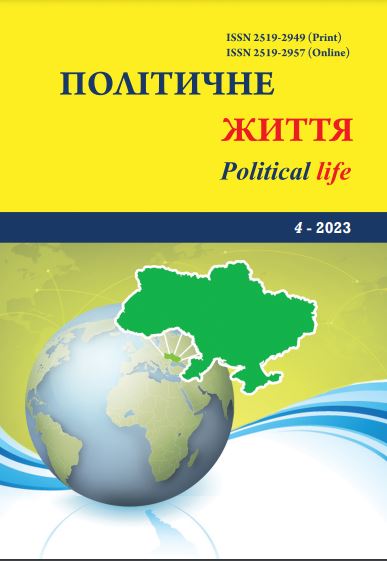The right to legal aid in the standards of the council of Europe and the European Union: legal and linguistic aspects
DOI:
https://doi.org/10.31558/2519-2949.2023.4.12Keywords:
human rights; right to defense; Convention for the Protection of Human Rights; European Committee for the Prevention of Torture; CPT; prevention of torture; legal aid; right to legal aid; lawyer; advocate; right to a lawyerAbstract
The article is focused on the linguistic and legal interpretation of certain concepts contained in the European Convention on Human Rights, reports of the European Committee for the Prevention of Torture, and other documents of the Council of Europe and the European Union.
The author’s analysis has a practical focus, as it concerns the harmonisation of the categorical apparatus used in numerous European standards on human rights in criminal and other proceedings, which reflect the current challenges of social development not only in Ukraine but also in the common European legal space.
The purpose of the author’s study is to conduct a comparative analysis of the Council of Europe standards and the EU documents relating to the right to legal aid, which is a component of both the right to a fair trial and the prohibition of torture and ill-treatment.
The article analyses the peculiarities of the wording of the right to legal aid in the text of the Convention for the Protection of Human Rights published in different languages of the Council of Europe member states, with the emphasis and corresponding conclusion being made that the Ukrainian translation is the closest to the English one due to the emphasis on actions («the right to a procedure» or «the right to action»). At the same time, translations into other European languages mostly focus mainly on the subject («the right to a subject»), which can be considered close to the French text of the Convention.
In addition, the article describes the fundamental principles of legal aid in the context of Articles 3 and 6 of the ECHR, since the right to legal aid is fundamental to both Articles, although the exercise of such a right has a different nature. Thus, for the purposes of Article 3 of the Convention, the right of access to a lawyer is aimed at preventing torture or inhuman or degrading treatment and is not related to issues of due process or the right to defence.
The article analyses the fundamental tenets of the CPT, which it constantly adheres to in its practice and highlights in its reports to the Governments of the Council of Europe Member States, where such tenets are: 1) the right to a lawyer from the very beginning of detention; 2) the right to contact a lawyer and the right of a lawyer to visit a client (including the issue of confidentiality of communication); 3) the right of a person concerned to have a lawyer present during interrogation.
The author analyses the relevant provisions of the EU documents on the right to legal aid (Resolution 2009/C295/01, Directive 2013/48/EU, etc.).
The author focuses on one of the most important cases on the subject of this study, namely, the ECtHR judgment in the case of Artico v. Italy, which is still a benchmark for European organisations and their institutions in terms of formulating the provisions of various standards in terms of ensuring the right to legal aid.

